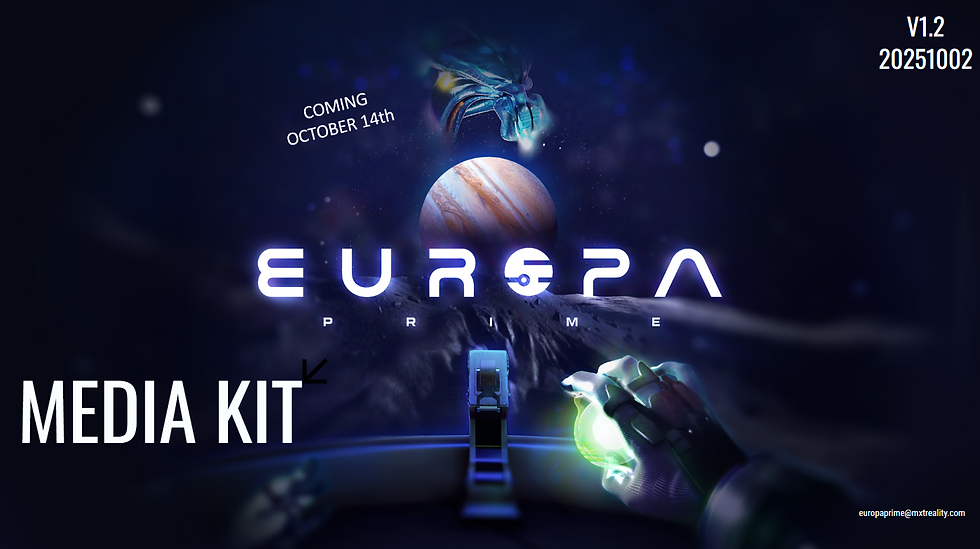Star Talk: Why Europa? Will We Meet Our Alien Neighbors in 2031?
- Europa Prime
- Nov 14, 2024
- 2 min read
Updated: Nov 30, 2024
Now embarking on its seven-year journey to Europa, the Europa Clipper mission sparks questions about the possibility of life within our solar system. In this engaging podcast, Neil deGrasse Tyson asks, "Could we find life thriving in our own cosmic neighborhood?" He’s joined by astrobiologist and planetary scientist Kevin Hand as they explore one of astrobiology’s most thrilling frontiers: the ocean worlds beyond Earth. Together, they delve into the Europa Clipper mission, its groundbreaking goals, and the search for life in the mysterious depths of Europa’s icy ocean.
Are we alone in the universe?
Scientists have been captivated by the mysterious activity beneath Europa’s frozen surface, eventually discovering that the outer solar system harbors multiple ice-covered worlds with subsurface oceans. But could these alien oceans support life?
While the search for life on Mars focuses on ancient, fossilized life forms, Europa and Enceladus could host extant life—living organisms thriving beneath their icy crusts. This episode explores how these moons upended our beliefs about habitability and where life can be found., and discuss what life could look like on these moons, pondering whether evolution is contingent on specific events (like the extinction of dinosaurs) or if useful traits might evolve independently across the universe.
The conversation shifts to Titan, a moon with liquid methane lakes, and the possibility of methane-based life. Can a liquid other than water sustain life? We explore how water's polarity makes it essential for dissolving life-supporting compounds, whereas methane’s non-polar nature complicates this idea.
Watch the fascinating episode to learn about extreme life forms on Earth, from hydrothermal vents to underground microbes.
Particular focus is on NASA’s Europa Clipper mission, which will perform flybys just 25 kilometers above the moon's surface, the hosts marvel at the engineering feat of sending a spacecraft so far from Earth.
Discover how The Clipper’s onboard instruments will give us an unprecedented glimpse into the chemistry of Europa’s hidden ocean, analyzing plumes of water vapor that escape through cracks in the ice. Could we find more than just water down there—perhaps even signs of life?
Timestamps:
00:00 - Introduction: Kevin Hand at JPL
01:40 - Why Europa?
05:26 - Contingent & Convergent Evolution on Other Worlds
09:24 - Life Beyond the “Habitable Zone”
14:05 - Can A Liquid Besides Water Sustain Life?
24:04 - The Europa Clipper Mission
32:33 - How Life Could Be Sustained on Europa



Comments